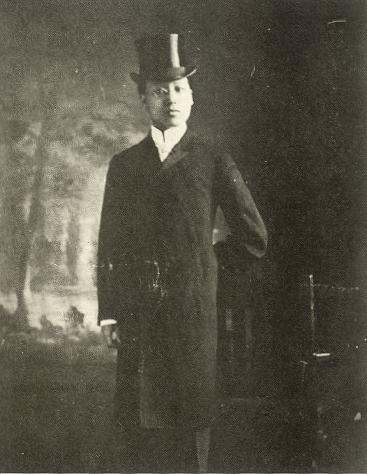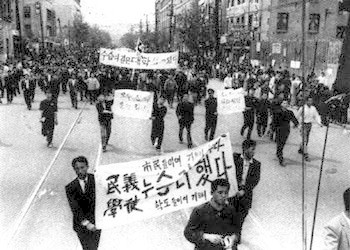|
Chung-Ang University
Chung-Ang University (CAU; ) is a private research university in Seoul, South Korea. It is widely regarded as one of the best universities in South Korea. The university operates two campuses: main campus located in Dongjak District, Seoul, and an additional campus in Anseong, Gyeonggi Province. CAU consists of 16 undergraduate colleges and 16 graduate schools. Starting as a church-run kindergarten in 1916, CAU transformed into a school for female kindergarten teachers in 1922 and was granted university status in 1953. The university held its centennial in 2018. It has 33,600 undergraduates, 5,200 graduates, 700 professors and 500 more part-time teaching staff. Established in 1918, CAU has endured through the painful course of Korea's modern history, upholding its ideal of "Truth and Justice". The symbol of Central University is Blue Dragon. The blue dragon statue represents the dragon to the universe toward the outer world by ascending and ascending the earth with the dragon ... [...More Info...] [...Related Items...] OR: [Wikipedia] [Google] [Baidu] |
Seal (emblem)
A seal is a device for making an impression in Sealing wax, wax, clay, paper, or some other medium, including an embossment on paper, and is also the impression thus made. The original purpose was to authenticate a document, or to prevent interference with a package or envelope by applying a seal which had to be broken to open the container (hence the modern English verb "to seal", which implies secure closing without an actual wax seal). The seal-making device is also referred to as the seal ''matrix'' or ''die''; the imprint it creates as the seal impression (or, more rarely, the ''sealing''). If the impression is made purely as a relief resulting from the greater pressure on the paper where the high parts of the matrix touch, the seal is known as a ''dry seal''; in other cases ink or another liquid or liquefied medium is used, in another color than the paper. In most traditional forms of dry seal the design on the seal matrix is in Intaglio (sculpture), intaglio (cut below th ... [...More Info...] [...Related Items...] OR: [Wikipedia] [Google] [Baidu] |
Syngman Rhee
Syngman Rhee (, ; 26 March 1875 – 19 July 1965) was a South Korean politician who served as the first president of South Korea from 1948 to 1960. Rhee was also the first and last president of the Provisional Government of the Republic of Korea from 1919 to his impeachment in 1925 and from 1947 to 1948. As President of South Korea, First Republic of Korea, Rhee's government was characterised by authoritarianism, limited economic development, and in the late 1950s growing political instability and public opposition. Authoritarianism continued in South Korea after Rhee's resignation until June Democratic Struggle, 1988, except for a few Second Republic of Korea, short breaks. Born in Hwanghae Province, Joseon, Rhee attended an American Methodist school, where he converted to Christianity. He became involved in Anti-Japanese sentiment in Korea, anti-Japanese activities after the 1894–95 First Sino-Japanese War and was imprisoned in 1899. Released in 1904, he moved to the Unite ... [...More Info...] [...Related Items...] OR: [Wikipedia] [Google] [Baidu] |
Natural Sciences
Natural science is one of the branches of science concerned with the description, understanding and prediction of natural phenomena, based on empirical evidence from observation and experimentation. Mechanisms such as peer review and repeatability of findings are used to try to ensure the validity of scientific advances. Natural science can be divided into two main branches: life science and physical science. Life science is alternatively known as biology, and physical science is subdivided into branches: physics, chemistry, earth science, and astronomy. These branches of natural science may be further divided into more specialized branches (also known as fields). As empirical sciences, natural sciences use tools from the formal sciences, such as mathematics and logic, converting information about nature into measurements which can be explained as clear statements of the " laws of nature". Modern natural science succeeded more classical approaches to natural philosop ... [...More Info...] [...Related Items...] OR: [Wikipedia] [Google] [Baidu] |
Education
Education is a purposeful activity directed at achieving certain aims, such as transmitting knowledge or fostering skills and character traits. These aims may include the development of understanding, rationality, kindness, and honesty. Various researchers emphasize the role of critical thinking in order to distinguish education from indoctrination. Some theorists require that education results in an improvement of the student while others prefer a value-neutral definition of the term. In a slightly different sense, education may also refer, not to the process, but to the product of this process: the mental states and dispositions possessed by educated people. Education originated as the transmission of cultural heritage from one generation to the next. Today, educational goals increasingly encompass new ideas such as the liberation of learners, skills needed for modern society, empathy, and complex vocational skills. Types of education are commonly divided into ... [...More Info...] [...Related Items...] OR: [Wikipedia] [Google] [Baidu] |
Social Sciences
Social science is one of the branches of science, devoted to the study of society, societies and the Social relation, relationships among individuals within those societies. The term was formerly used to refer to the field of sociology, the original "science of society", established in the 19th century. In addition to sociology, it now encompasses a wide array of academic disciplines, including anthropology, archaeology, economics, human geography, linguistics, management science, communication science and political science. Positivism, Positivist social scientists use methods resembling those of the natural sciences as tools for understanding society, and so define science in its stricter Modern science, modern sense. Antipositivism, Interpretivist social scientists, by contrast, may use social critique or symbolic interpretation rather than constructing empirically falsifiable theories, and thus treat science in its broader sense. In modern academic practice, researchers are ... [...More Info...] [...Related Items...] OR: [Wikipedia] [Google] [Baidu] |
Humanities
Humanities are academic disciplines that study aspects of human society and culture. In the Renaissance, the term contrasted with divinity and referred to what is now called classics, the main area of secular study in universities at the time. Today, the humanities are more frequently defined as any fields of study outside of professional training, mathematics, and the natural and social sciences. They use methods that are primarily critical, or speculative, and have a significant historical element—as distinguished from the mainly empirical approaches of the natural sciences;"Humanity" 2.b, ''Oxford English Dictionary'' 3rd Ed. (2003) yet, unlike the sciences, the humanities have no general history. The humanities include the studies of foreign languages, history, philosophy, language arts (literature, writing, oratory, rhetoric, poetry, etc.), performing arts ( theater, music, dance, etc.), and visual arts ( painting, sculpture, photography, filmmaking, ... [...More Info...] [...Related Items...] OR: [Wikipedia] [Google] [Baidu] |
Camp Colbern
Camp Colbern, in Hanam-shi near Seoul, Republic of Korea, was a U.S. Army installation and the home of the 304th Signal Battalion. It closed in late 2005, with the move of the 304th to Camp Stanley Camp Stanley is a former U.S. Army military camp located just east of the city of Uijeongbu, South Korea. The camp is part of the Red Cloud Garrison which is composed of Army installations near the Korean Demilitarized Zone (DMZ). Camp Stanley b ..., Republic of Korea. Also, the land was returned in 2006 to ROK. Camp Colbern existed for 41 years, with the 304th occupying the Camp for 3 of those decades. References {{coord, 37.514726, 127.227361, type:_region:, display=title Closed installations of the United States Army Colbern, Camp ... [...More Info...] [...Related Items...] OR: [Wikipedia] [Google] [Baidu] |
May 16 Coup
The May 16 military coup d'état () was a military coup d'état in South Korea in 1961, organized and carried out by Park Chung-hee and his allies who formed the Military Revolutionary Committee, nominally led by Army Chief of Staff Chang Do-yong after the latter's acquiescence on the day of the coup. The coup rendered powerless the democratically elected government of Prime Minister Chang Myon and President Yun Posun, and ended the Second Republic, installing a reformist military Supreme Council for National Reconstruction effectively led by Park, who took over as chairman after General Chang's arrest in July. The coup was instrumental in bringing to power a new developmentalist elite and in laying the foundations for the rapid industrialization of South Korea under Park's leadership, but its legacy is controversial for the suppression of democracy and civil liberties it entailed, and the purges enacted in its wake. Termed the "May 16 Military Revolution" by Park and his ... [...More Info...] [...Related Items...] OR: [Wikipedia] [Google] [Baidu] |
March 1960 South Korean Presidential Election
Presidential and vice-presidential elections were held in South Korea on 15 March 1960. Shortly after winning reelection to a second term in the 1952 presidential election, Rhee had the legislature pass a constitutional amendment exempting himself from the two-term limit, allowing himself to run for and win a third term in 1956 and in March 1960. After the death of Democratic Party opponent Cho Pyong-ok, Rhee was left as the only candidate, and was re-elected unopposed.Han, S-J. (1974) ''The Failure of Democracy in South Korea.'' University of California Press, p. 28. Voter turnout was 97.0%. With the lack of a meaningful contest in the presidential race, popular focus shifted to the vice-presidential contest where Rhee's Liberal Party candidate Lee Ki-bung competed against Chang Myon. The elections were heavily rigged in Lee's favor, and widespread allegations of corruption and manipulation of the results sparked protests which spiralled into the April Revolution, causing the ... [...More Info...] [...Related Items...] OR: [Wikipedia] [Google] [Baidu] |

.jpg)






